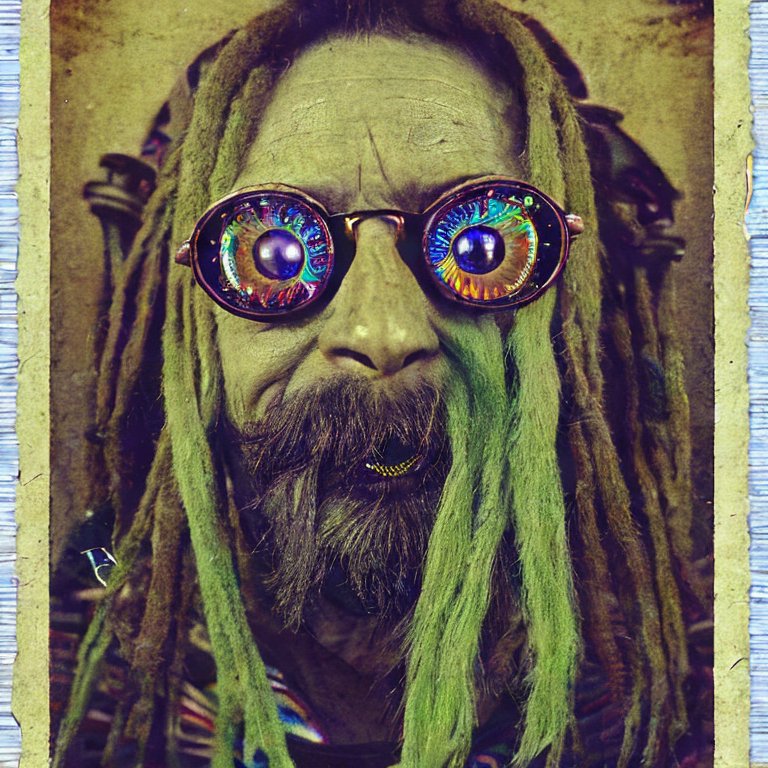I rarely feel attacked when I talk with people in person. And we all take people feelings into consideration enough so no one is trying to attack anyone.
I was not actively commenting on social media since I was 13. But when I joined Lemmy i saw the statistics only 1% of people are actively posting and commenting on social media. And since I knew I was in 99% of people who are only consuming and really wanted Lemmy to take off I tried to be more active.
But now I find myself way too often attacked and attacking. And I always judged people that are attacking others on Xitter or Facebook.
All the people here saying, “Just block them” - personally I just can’t help suspecting that these are the same people who themselves are insulting and abusing others, who in turn are saying “Just block them”.
The solution is not that everyone blocks everyone else. The solution is that we behave civilly and respectfully to each other.
Is it normal? Kinda. Is it healthy? No
Yeah, I think this is fairly common. I’m pretty good at not being overly adversarial online, but that takes me a bunch of active effort. Sometimes that means taking a big breath and moving on.
I think it’s admirable that you care about contributing through commenting; I saw a similar stat when I moved to Lemmy and I have also been more active in commenting. However, if you’re not enjoying how you’re typically engaging, perhaps a different framing could be useful: rather than (or in addition to) thinking about commenting as you contributing to the community/platform, think about it as something that you’re doing to enrich yourself. For example, sometimes when I do get into spicier discussions, it’s because I am responding to someone I disagree with, but whose points have caused me to think differently. Or maybe I am enjoying the practice in articulating my views on a complex matter. Or maybe it’s cathartic. Thinking about what I hope to gain from a discussion helps me to avoid unproductive discussions where it’s just mutual attacks.
If you can’t find a middle way, it’s also okay to not comment on things. My opinion is that we do owe a duty to the communities we inhabit, and in the online world, that might imply that it’s good to be contributing via commenting. However, informational self-care is incredibly important nowadays, and it’s so easy to become burnt out. It’s okay to not engage in behaviours that cause you harm (or aren’t encouraging you to grow in the way that you would prefer).
I used to have this problem all the time, I think it’s pretty normal. I did many years of therapy, and part of what I got out of that was an understanding of how people deal with pain and anger. The best way to change someone’s mind is to try to empathize with their position and show your understanding. Once you share context with them, you can gently explain why you feel the way you do. Sometimes, you do this and find that the other person’s point of view is a more accurate reflection of your values and you change your mind instead.
Don’t do this with bad faith actors though. just block them.
I used to have this problem all the time, I think it’s pretty normal. I did many years of therapy, and part of what I got out of that was an understanding of how people deal with pain and anger. The best way to change someone’s mind is to try to empathize with their position and show your understanding. Once you share context with them, you can gently explain why you feel the way you do. Sometimes, you do this and find that the other person’s point of view is a more accurate reflection of your values and you change your mind instead.
Don’t do this with bad faith actors though. just block them.
A large part of growing up with social media is learning how to effectively use your emotions in a way that assists you rather than hindering you. Passion and anger are way too close together, it can be really hard to separate them. Passion is very helpful when motivating yourself to write in a compelling way. Unfortunately, it’s something that can best be learned through practice. The good news is the first step is recognizing that it is a problem, so you have started. The bad news is, you won’t be good at it for a while still, but keep trying anyway.
Argue bad. Discuss good.
It might be worth it to consider what tone you, yourself, are placing on the text you’re reading. Words being spoken in anger or not will look exactly the same when they’re written down.
That’s a terrible opinion and you are dumb for thinking it!!1!
There’s a couple things at play here when you talk to people online.
Ultimately, there’s a difference between feeling attacked and being attacked. Both are common in online discussions.
Why do people attack people?
The anonymity and distance of the internet makes it easier for people to share strong opinions - for better or worse. There’s a certain amount of psychology around the design of social media that pushes people towards confrontation.
Sometimes aggression is the default state for people. Depending on your world view that might be either sad or necessary.
That said, I believe there’s a difference between a justified attack and an unjustified one. If someone is spreading hate, we all owe it to the community to fuck that person up with our words. If someone shares a harmless opinion then there isn’t much call for a personal attack.
Why do I feel attacked?
If you feel attacked on the internet, there’s ultimately two possibilities: you’re being attacked or you’re mistaken. For the sake of this section, let’s say you’re mistaken.
Non-verbal communication is an essential part of communication between humans, and is something that’s hard to replicate in text. Ultimately, our non-verbal cues set an expected tone.
Sometimes when writing we recognize this and use a tonal indicator to set expectations. Emoji 🙄, gestures *rolls eyes* and, appending flags /s are all ways that we might set tone. These three examples all indicate “sarcasm” which for many people seems to be the default way to express themselves.
Sarcasm in particular is problematic because it often inverts the meaning of what was said. The phrase, “oh yeah, brilliant idea” has opposite interpretations if you’re being sarcastic. Sometimes the writer assumes the reader will know what they intended because they were feeling sarcastic when they typed it. Of course, as a reader we have no way of knowing what the writer’s feelings were at the time of writing.
Another element at play here is that a good deal of conversation on the internet is debate. Some people equate disagreement with condemnation, so if your feelings are hurt by that it’s common to lash out. Many debates on the internet start civilly enough and then deteriorate to name calling and cursing in short order. It’s wise to try to be the bigger person and assume no malice, because once it gets out it’s hard to put back.
Statistics and Bias
You probably had the right idea that only about 1% of users are active commenters. Similar to that, there’s also a phenomenon where the most vocal (and often inflammatory) users represent a similarly small portion of the group.
Our brains are evolved for survival, so they pay special attention to negative stimuli. Basically, they’re always looking for trouble, and if you’re looking for trouble you’re likely to find it.
What this ultimately means is that we remember the bad things far more memorably than the good things. It also means that even if a small percentage of people are attacking others, because they dominate the conversation we start to believe that everyone carries that opinion. But as you point out, 99% of users aren’t even commenting, so we really don’t have a good grasp on what the larger population is like.
It also means that if you exercise your block list, you don’t have to put in too much work to remove the most hateful people from your feed.
Closing
Anyway, I think you have the right idea. It sounds like you don’t go looking for fights.
I try to keep a similar philosophy. If I disagree with someone then I’ll seek to empathize or educate. However, if someone is vocal about my erasure or directing hate and violence towards people then I’ll let them have it. I figure those people are looking for trouble and by golly I’ll give it to them - it’s always morally correct to punch a nazi.
I would say… yes! you never know who you are really talking to, so I would never take anything personal someone says to me online, no matter what was said to me.
these are just words on a sceen that can be written by someone who is unwell mentally, as normal people don’t bring other people down during a discussion.
it takes awhile to get used to this, but once you do, the good conversations you have online will (hopefully) outshine the bad ones. good luck!
When I realized everyone is just frustrated and venting about the lack of control they have in their lives, things became much easier.
100% monkeys were not meant to have real discussions behind an anonymous wall. People act differently with little to no repercussions. Add in vocal minorities, group think, bots, and you have a recipe for hate. Good well meaning people screaming at each other from the same tent is pretty obvious on Reddit and moreso on Lemmy but it’s nothing compared to Facebook and Twitter which are more representative of populations.
I’m about to go full boomer here. The Internet even pre social media was the end for globalism and what most of the west thinks of the good days (yes I realize it was far from perfect but you can submit the trend has gone changed downwards with regards to global stability). While yes it gives people the ability to safely explore and learn it more often gives a voice to shitty dumb and uneducated opinions and ideas without repercussions. Add social media and essentially the digital communications wars governments and zealots are engaging in at a scale we’ve never seen.
Yes, unfortunately, and it’s healthy to recognize that. Good on ya.
It’s normal, and frankly as old as the internet (any of y’all remember the term ‘flame wars’?). A lot of people here have made great points as to why it happens.
My suggestion? Ignore the attacks, and speak to the content in as even a tone you can manage if you feel the topic is worth discussing. If it gets to a point where the meat of the discussion is lost in the attacks, disengage. Recreational discussion on the net doesn’t need to be a combat sport.
The worst you’ll get with this approach is an accusation of ‘sea-lioning’, which makes some assumptions around intent you can’t really correct all that well if someone’s decided that’s what you’re doing. Though I welcome any suggestions - good faith is hard to prove online when people are so used to attack/counterattack discourse.





